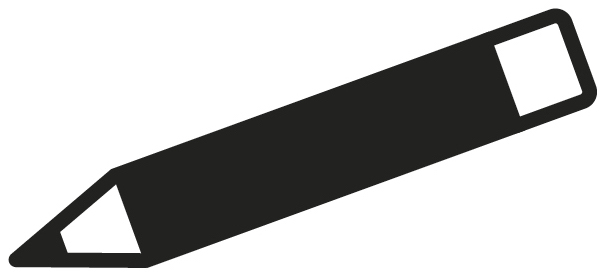




Luckbox
For any single decision, there are different ways the future could unfold—some better, some worse. When you make a decision, the decision makes certain paths possible (even if you don’t know where they lead) and others impossible. The decision you make determines which set of outcomes are possible and how likely each of those outcomes is. But it doesn’t determine which of that set of outcomes will actually happen.
Being a better decision-maker means being a better predictor of the set of possible futures. This book is designed to sharpen your skills, getting you closer to having a crystal ball. But, as fortune-tellers correctly warn us, “The future appears hazy,” because the way the future will eventually unfold is always uncertain.
In other words, there’s an important factor that influences the way our lives turn out: luck.
Luck is what intervenes between your decision (which has a range of possible outcomes) and the outcome that you actually get.

Because any decision determines only the set of possible outcomes (some good, some bad, some in between), this means good outcomes can result from both good and bad decisions, and bad outcomes can result from both good and bad decisions.
We can think about the relationship between decision quality and outcome quality like this:

An Earned Reward comes when you make a good-quality decision that results in a good outcome, like when you proceed through a green light and get through the intersection safely.
Dumb Luck comes when you make a poor-quality decision that turns out well. You can be waiting at a traffic light and fail to notice the light has turned green because you are deeply entranced by the world’s most important tweet. If, while you are sitting there failing to proceed through the intersection, you happen to avoid getting in an accident with a car whose driver ignores the red light in their direction and barrels through the intersection, that doesn’t make looking at Twitter while driving a good decision. That’s just Dumb Luck.
Bad Luck comes when you make a good-quality decision that turns out poorly. You can proceed through a green light and get in an accident with someone turning into traffic. That’s a bad outcome, but it wasn’t because your decision to follow the traffic laws was poor.
Just Deserts means making a poor-quality decision that results in a bad outcome, like running a red light and getting in an accident.
Obviously, there are plenty of examples of all four of these categories in everyone’s decision-making history. Sometimes your great decisions turn out great; other times bad luck gets in the way. Sometimes your bad decisions turn out horribly; other times you get lucky.
But resulting can cause you to lose sight of the role of luck in how things turn out.
Once we know what the outcome is, we often treat things as if there were only Earned Rewards or Just Deserts. Bad Luck and Dumb Luck recede into the shadows.

When it comes to learning from experience, those shadows can cause you to learn a lot of bad lessons.
When you make a decision that has only a 10% chance of a bad outcome, you will, by definition, get a bad outcome 10% of the time. And thanks to resulting, that 10% of the time you are in danger of thinking the decision was bad after the fact, even though it had a 90% chance of working out. It was a good decision, but your experience will have taught you not to make decisions like that again in the future.
This is the cost of resulting.

N ow let’s get you out from under the shadow of resulting by filling in all the cells in the matrix with examples from your own life.
First, think of a time in your life when things worked out well and you think your decision-making was also good. Briefly describe the situation in the Earned Reward cell below.
Next, think of a time in your life when things worked out poorly and you think your decision-making was good. Briefly describe the situation in the Bad Luck cell below.
Next, think of a time in your life when things worked out well and you think your decision-making was pretty poor. Briefly describe the situation in the Dumb Luck cell below.
Finally, think of a time in your life when things worked out pretty poorly and you think your decision-making was also pretty poor. Briefly describe the situation in the Just Deserts cell below.
